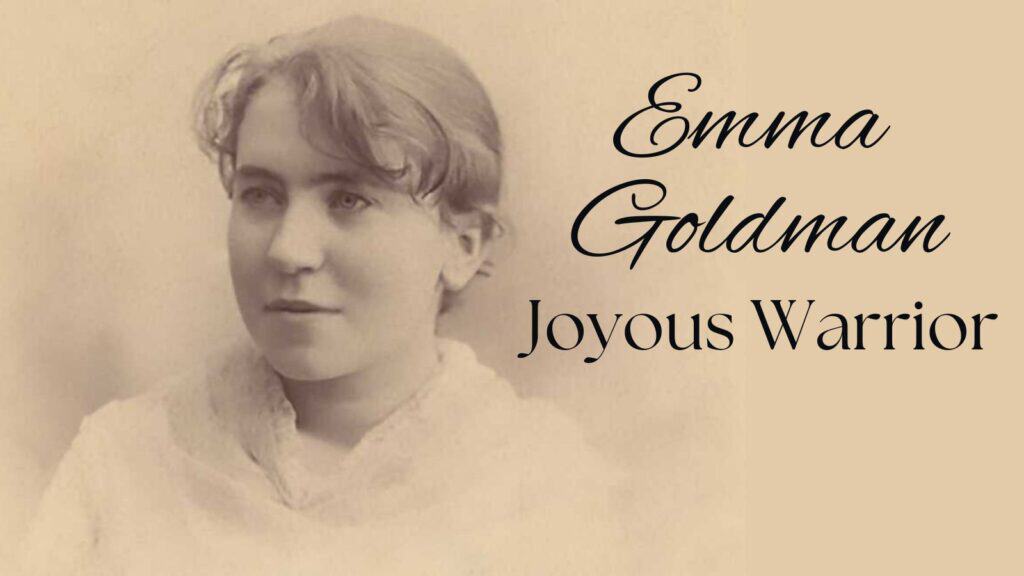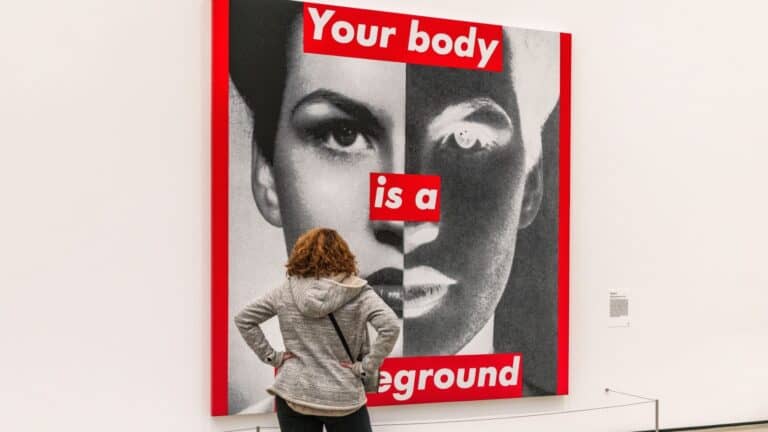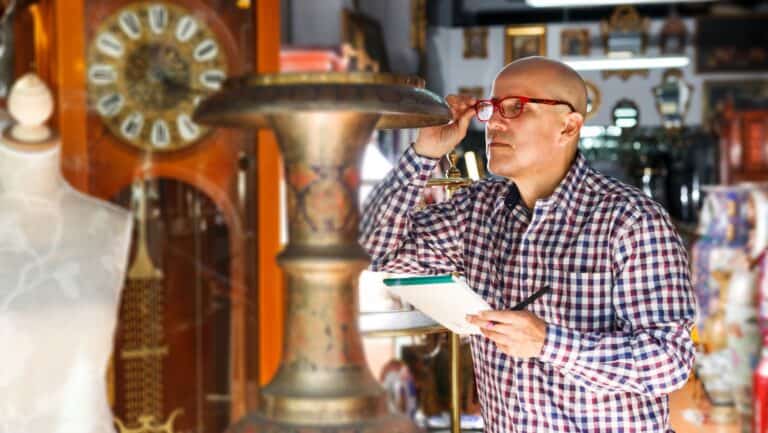Emma Goldman: Joyous Warrior
This essay is part of “(There is Nothing New) Under the Sun“ A monthly column of random, historical vignettes demonstrating that the more things change, the more they stay the same.
“If I can’t dance, I don’t want to be part of your revolution” is a widely misattributed quote that paraphrases a much longer paragraph from Emma Goldman’s autobiography in which she relates that a young fellow agitator scolded her for attending a local dance and enjoying herself so much, to which she responded that “I did not believe that a Cause which stood for a beautiful ideal, for anarchism, for release and freedom from convention and prejudice, should demand the denial of life and joy,” and this sentiment sums up her entire life. Although the deck was stacked against her in every way: she was born at the wrong time, in the wrong country, and in the wrong gender, religion, temperament, and intellect, Emma Goldman was a genius; she knew it, and she refused to hide her light under a bushel.

Emma Goldman was born in Lithuania in 1869 and was raised in what was then Tsarist Russia, replete with the poverty, starvation, and rampant antisemitism that characterized the era. Her childhood was bleak. In keeping with the traditions of the time, Emma’s orthodox father beat her (she told a story in which her mother smacked her across the face when she menstruated for the first time) and demanded that she drop out of school and get a job, claiming that Jewish girls didn’t need to know anything except cooking and childbearing. During her employment at a corset shop, Emma claims that she was sexually assaulted by a customer. At the age of 16, to flee a loveless arranged marriage, she fled Europe with an older sister, and came to America in 1885, settling in Rochester, New York.
Injustice, Inequality, and Exploitation
Emma arrived on our shores a full 35 years before women were legally allowed to vote and spent her entire life battling the three-headed-dragon of Injustice, Inequality, and Exploitation. She was consumed with the sufferings of women, Jews, peasants, the poor, the uneducated, the workers, the disenfranchised, and the unconnected. In her view, the world was fundamentally designed for “The Haves,” she was remarkably unafraid to go toe to toe with The Titans in pursuit of a new social world order.
Despite the fact that she had little formal education, Emma was a voracious reader who was an authority on the writings of George Bernard Shaw, Ibsen, and Strindberg and was instrumental in introducing the American theater-going public to many heretofore obscure European playwrights. She read Nietzsche, Thoreau, Tolstoy, Thomas Paine, Jack London, Theodore Dreiser, Thomas Jefferson, Zola, Walt Whitman, and Mark Twain, among many others, and she distilled much of their humanist wisdom into a way of looking at the world as it ought to be.
Anarchism & Athiesm
The Merriam Webster Dictionary defines anarchism as “a political theory holding all forms of governmental authority to be unnecessary and undesirable and advocating a society based on voluntary cooperation and free association of individuals and groups,” and Emma subscribed to both anarchism and atheism, contesting established authority wherever she found it.
The anarchists’ view of the world is a vehement objection to capitalism, seen by the anarchist community as the proverbial fox in the henhouse of workers, artists, and academics, using fear and violence to steal the fruits of their labors. The anarchist sees Patriotism as a tool to whip up phobias about other nationalities. At the same time, Religion supports capitalism by invading foreign lands to convert the natives, train the pious to comply with the establishment and to consider the possibility of Heaven as reward enough on Earth. Colonialism justifies occupying and pillaging in the name of “civilizing,” but in reality to snatch resources from ill-prepared populations. Education teaches children not to think, but to be compliant sheep in support of the capitalist machine.
Free love, Birth Control and Unions
Emma did not become a suffragette because she wanted nothing less than a complete transformation and complete equality with men and men and she wanted women (and all people) to have physical, financial, and intellectual autonomy, free and universal education, and free love. She approved all measures to acquire these things until 1901 when she rejected her previous tolerance of violence as a means to an end.
It cannot be stressed how shocking and courageous it was for a woman to be speaking on such topics as the necessity for birth control and unions. Emma, a nurse and midwife, got into trouble with the American authorities and was arrested several times. During World War I, the authorities passed the Espionage Act of 1917, making it illegal to criticize the US Government, and she was implicated in numerous instances of doing so – most notably in speaking out against the draft and encouraging women to use birth control – in her lectures and her books. She was an unrelenting and enthusiastic public speaker who was arrested so often that she never failed to bring a book to her controversial lectures so she had something to occupy her mind behind bars.

Deportation
Deported to the newly minted Soviet Union in 1919, following the enactment of the Anti-Anarchist Act, Emma was an essential cog in the wheels of building Bolshevik Russia, a short-lived passion that fizzled when Emma realized that Bolshevism was just the Wolf of Capitalism dressed in the sheep’s clothing of The Soviet. Power in any hands meant trouble for those without it. She spent the rest of her life dismantling the idea of Soviet Russia.
In 1921, she became a British citizen by marriage and died in Canada in 1940, leaving behind an archive of writings on subjects close to her heart. You can see Emma in Warren Beatty’s film Reds, brilliantly played by Maureen Stapleton, who won an Academy Award for Best Actress In A Supporting Role in 1982.
Read Emma Goldman
Affiliate Disclosure: This post may contain affiliate links. Please see our disclosure policy for details.
Last update on 2025-07-10 / Affiliate links / Images from Amazon Product Advertising API













